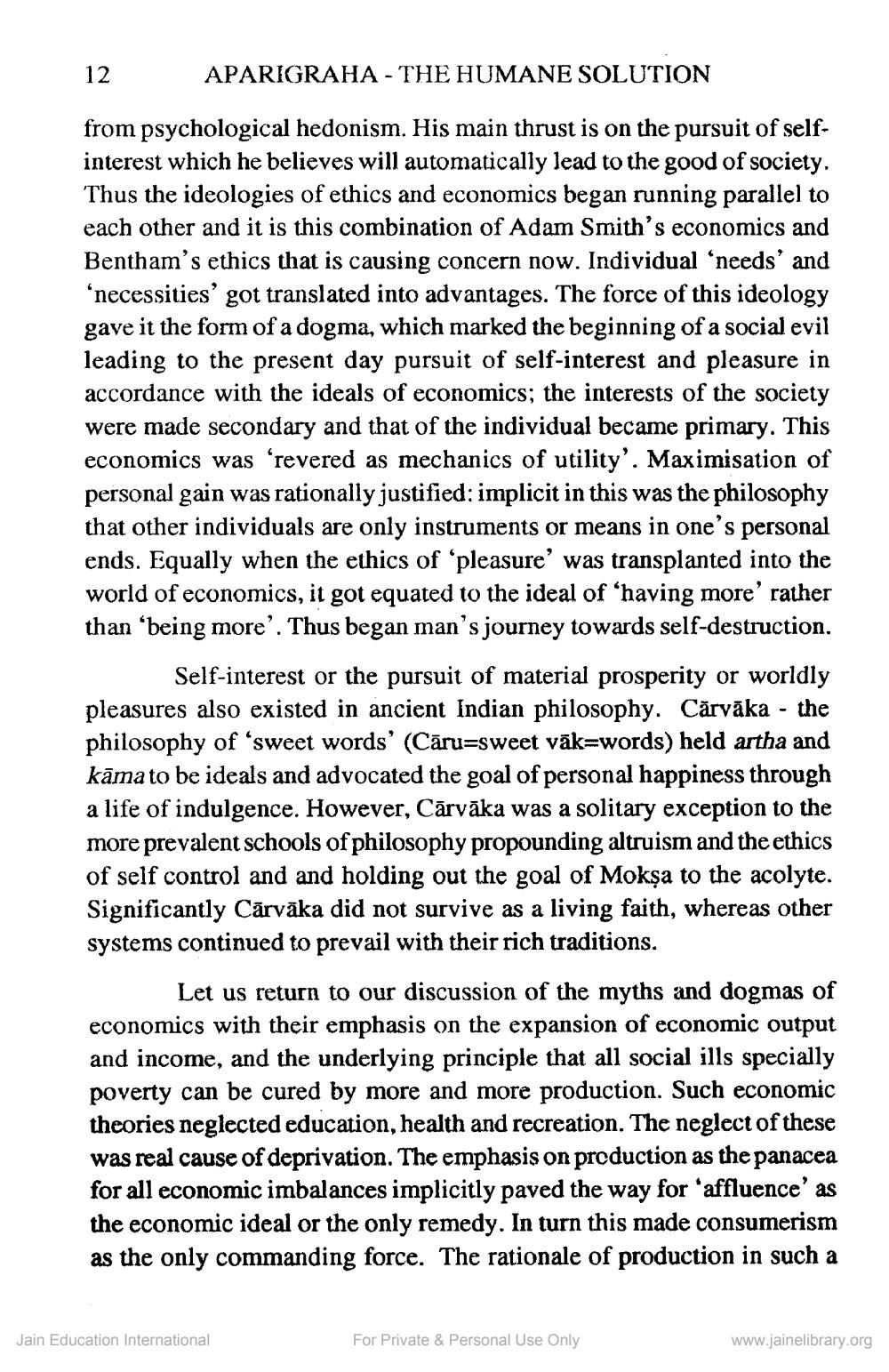________________
12
APARIGRAHA - THE HUMANE SOLUTION
from psychological hedonism. His main thrust is on the pursuit of selfinterest which he believes will automatically lead to the good of society, Thus the ideologies of ethics and economics began running parallel to each other and it is this combination of Adam Smith's economics and Bentham's ethics that is causing concern now. Individual 'needs' and “necessities' got translated into advantages. The force of this ideology gave it the form of a dogma, which marked the beginning of a social evil leading to the present day pursuit of self-interest and pleasure in accordance with the ideals of economics; the interests of the society were made secondary and that of the individual became primary. This economics was 'revered as mechanics of utility'. Maximisation of personal gain was rationally justified: implicit in this was the philosophy that other individuals are only instruments or means in one's personal ends. Equally when the ethics of 'pleasure' was transplanted into the world of economics, it got equated to the ideal of 'having more' rather than being more'. Thus began man's journey towards self-destruction.
Self-interest or the pursuit of material prosperity or worldly pleasures also existed in ancient Indian philosophy. Cărvāka - the philosophy of 'sweet words' (Cāru=sweet vāk=words) held artha and kāma to be ideals and advocated the goal of personal happiness through a life of indulgence. However, Cārvāka was a solitary exception to the more prevalent schools of philosophy propounding altruism and the ethics of self control and and holding out the goal of Moksa to the acolyte. Significantly Cārvāka did not survive as a living faith, whereas other systems continued to prevail with their rich traditions.
Let us return to our discussion of the myths and dogmas of economics with their emphasis on the expansion of economic output and income, and the underlying principle that all social ills specially poverty can be cured by more and more production. Such economic theories neglected education, health and recreation. The neglect of these was real cause of deprivation. The emphasis on production as the panacea for all economic imbalances implicitly paved the way for 'affluence' as the economic ideal or the only remedy. In turn this made consumerism as the only commanding force. The rationale of production in such a
Jain Education International
For Private & Personal Use Only
www.jainelibrary.org




